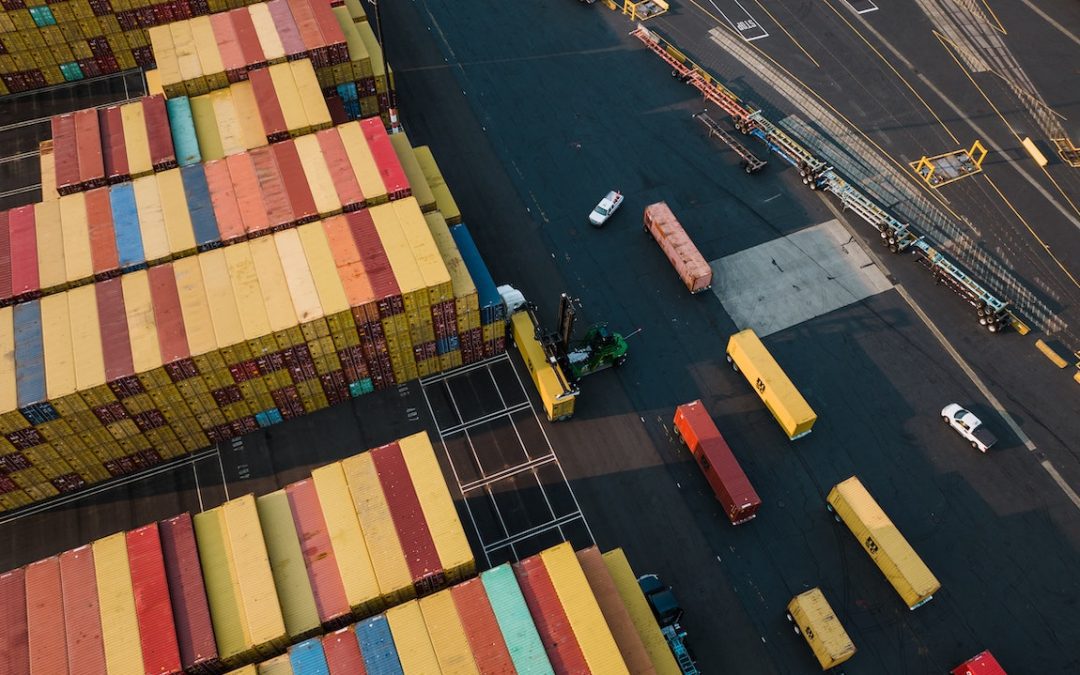Has a quote for freight forwarding recently left you baulking at the price?
Maybe you’ve even noticed some surprisingly cheap shipping estimates flying around. Are they too good to be true? Why are they so affordable?
In reality, the cost of shipping goods recently was at an all-time high. It’s more important than ever to know what you’re paying for and why so that you can skip past bogus forwarders and make your money, and your freight forwarder, work for you.
In this blog, we’re going to run through the elements of shipping that need to be paid. Always check whether they are included within your quote by asking your forwarder before taking up their services; reputable freight forwarders won’t mind.
Palletisation And Packing
Making the best use of the space within a shipping container or other mode of freight transport goes hand in hand with keeping costs as low as possible. Fitting all of the cargo together safely and precisely is achieved through proper packing and palletisation.
Any wood used at this stage of freight forwarding is also subject to international legislation, so make sure that the company you’re using understands the rules and regulations of your destination country.
Some freight forwarders offer a packing service as an additional charge, providing peace of mind that your goods will be compliant and not returned to the port of origin for repacking.
Carrier Costs, Destination And Distance
Plane, train, truck or ship, your mode of transport accounts for a fair chunk of your shipping estimate.
Sea freight tends to work out cheapest of them all, with air freight coming up as the most expensive, but what’s right for you heavily depends on what it is you’re shipping. Find out more about how the methods of cargo delivery compare in this recent blog.
How far your goods need to travel also plays a role in pricing up a freight mission.
Shipments travelling further distances will generally, and rather unsurprisingly, cost more than shorter ones due to fuel usage and travel time. The rule isn’t written in stone, however, because a freight forwarder may be able to negotiate lower carrier costs on popular routes.
Import and export fees can also vary from country to country, and numerous destination costs could affect your shipment. Handling and clearing charges may come into play at the loading and origin ports, as well as unpacking costs and warehousing fees.
Documentation Costs
Freight forwarders typically include an admin fee for completing important documentation for you, like the Bill of Lading (or BoL). This can be a really helpful service for lots of exporters because shipping documentation is notoriously confusing, and getting it wrong can be disastrous. (Not sure what a BoL is? Read our plain-English, easy-to-understand blog on the topic here).
Goods that need extra paperwork, such as hazardous materials, usually incur additional documentation charges.
Insurance
Carrier liability insurance is a legal requirement but often provides minimal coverage, meaning your goods aren’t actually well protected.
For this reason, it’s heavily advised to get cargo insurance. You might see it automatically included in a freight forwarder’s quote, but it’s more often offered as an add-on service that you’ll need to request.
Some forwarders don’t offer cargo insurance whatsoever; in this instance, you’ll need to hunt it out separately from an insurer or broker.
Container Costs
Container shipping costs vary, but what’s for certain is that you’ll either be charged for a full container load, (FCL), or a less-than-container load, (LCL).
Not enough cargo to fill a container? Whilst LCL might seem the obvious choice, sharing your container with other consignments means there will be further costs down the line at the destination port to cover the work of separating the shipments.
Type, Weight And Volume Of Goods
What you’re shipping affects how much it costs to move it.
Type Of Cargo
Does the hazardous nature of your goods require careful handling? Perhaps your LCL of perishable grocery items need to be housed in a specialist container.
Any cargo with extra requirements will be more costly to ship.
Weight And Volume
To put it simply, of two shipments weighing the same, the one that takes up more container space will cost more to ship. This is all thanks to the term chargeable weight, which is calculated by converting the volume of your cargo into an equivalent weight.
Administration Fees
Freight forwarders organise and coordinate all of the different components of the shipping process, which can be stressful, time-consuming and bamboozling to sort out yourself. And guess what, they don’t work for free!
On top of all of the costs we’ve covered so far, part of the quote you receive from a freight forwarder will include an admin charge to cover the cost of their services.
Trying To Work Out What Your Freight Forwarder’s Quote Covers?
There are so many different component parts involved in shipping that digging into what your quote means can feel overwhelming.
But, with the fundamentals reviewed in this blog, you can rest assured that freight forwarding can save you time, money and a whole world of hassle.
Here at Millennium, we work with freight forwarders to help them move more of their client’s goods faster, and with less stress. Want to know more? Read all about the solid relationships we develop with our forwarders here.

